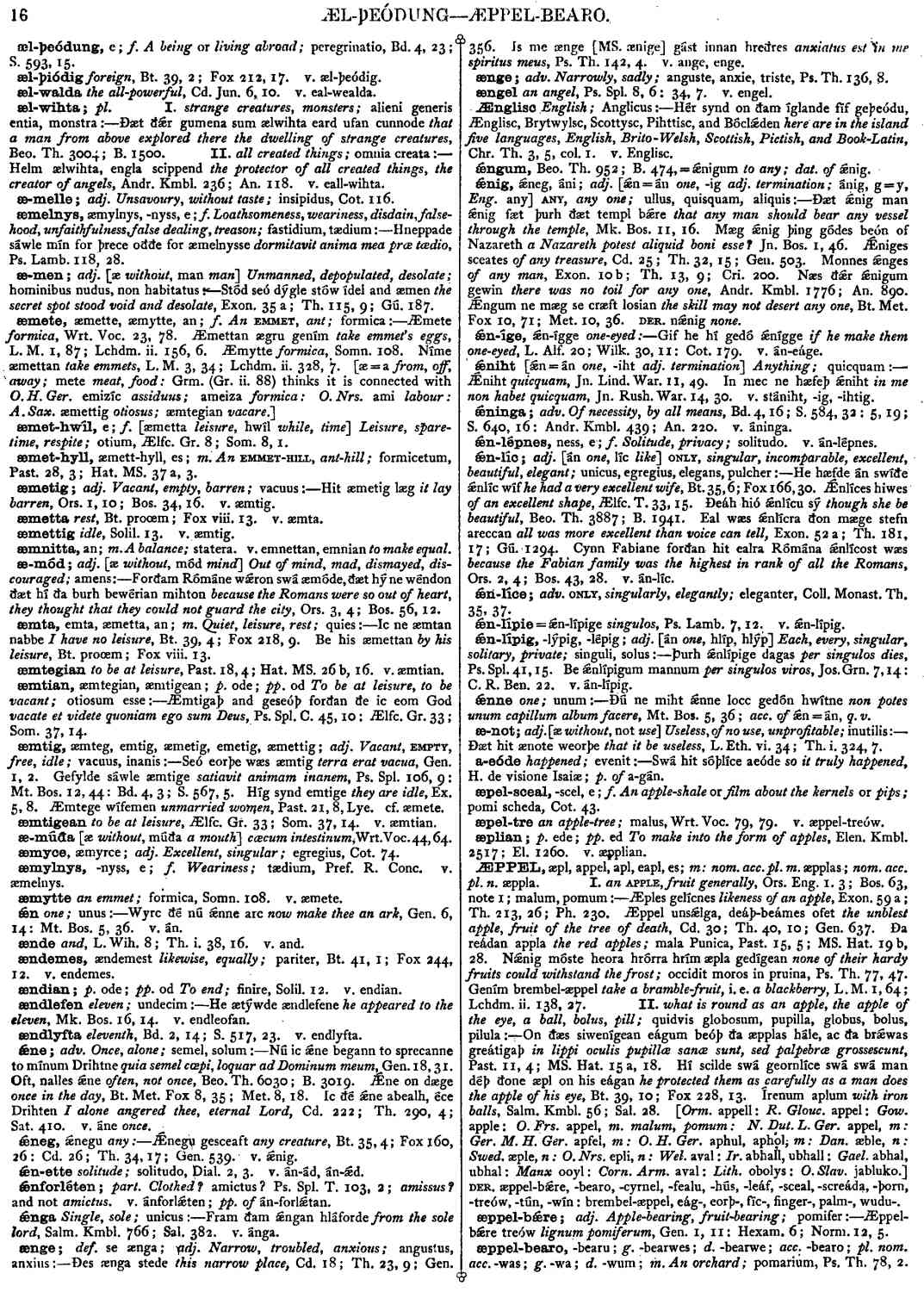ǽnig
- noun
- adjective
- pronoun
-
Ðæt ǽnig man ǽnig fæt þurh ðæt templ bǽre
that any man should bear any vessel through the temple,
- Mk. Bos. 11, 16 .
-
Mæg ǽnig þing gódes beón of Nazareth
a Nazareth potest aliquid boni esse?
- Jn. Bos. I, 46 .
-
Ǽniges sceates
of any treasure,
- Cd. 25; Th. 32, 15 ;
- Gen. 503 .
-
Monnes ǽnges
of any man.
- Exon. 10 b; Th. 13, 9 ;
- Cri. 200 .
-
Næs ðǽr ǽnigum gewin
there was no toil for any one,
- Andr. Kmbl. 1776 ;
- An. 890 .
-
Ǽngum ne mæg se cræft losian
the skill may not desert any one,
- Bt. Met. Fox IO, 71 ;
- Met. 10, 36 .
Bosworth, Joseph. “ǽnig.” In An Anglo-Saxon Dictionary Online, edited by Thomas Northcote Toller, Christ Sean, and Ondřej Tichy. Prague: Faculty of Arts, Charles University, 2014. https://bosworthtoller.com/692.
Checked: 1